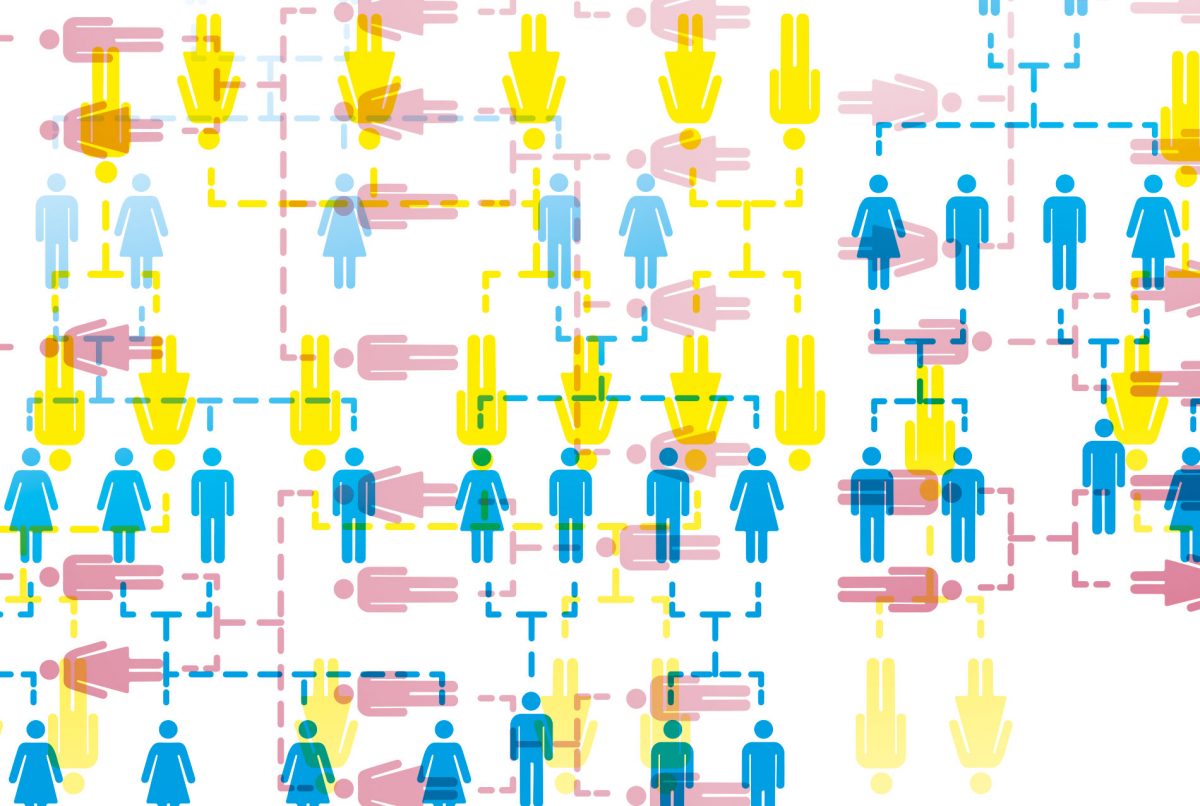By Edith van Ruitenbeek
On the 21st of May 2019, the Dutch parliament voted to review the law for spousal alimony, with the aim of limiting the period during which spousal alimony is paid out. According to the majority in Dutch parliament, now that society has changed, the old law is no longer adequate.
The new law limits the duration of spousal alimony to 50% of the total duration of the marriage, with a maximum of five years, with two exceptions. If the marriage lasted more than 15 years, the entitlement to spousal alimony could, under circumstances, last 10 years. And, if there are young children, spousal alimony might, under circumstances, be extended to up to 12 years. Furthermore, there is a hardship clause that will allow judges to extend the duration of the spousal alimony.
An argument that is often heard is that this change reflects the emancipation of women, and the fact that marriage can no longer be considered a life insurance. The statistics do not support this argument, however; in most situations there is hardly enough paying capacity to pay child support and therefore no paying capacity at all to pay spousal support. Taking into account the fact that one out of three marriages breaks down, this means that there already are a lot of divorced women who have to support themselves, even under the old law. The new law will certainly have more of an impact on wealthier couples, though.
 It is a good idea to write down the underlying intentions in the divorce covenant and parenting plan
It is a good idea to write down the underlying intentions in the divorce covenant and parenting plan
Divorce Is a Transfer from Married Life
As a lawyer specialized in family law, I have seen men who did not want to pay their ex-wife spousal alimony – sometimes moving abroad or giving up their job just to try to dodge these obligations. I have also seen women who simply refused to work themselves, although they could have made a living, or secretly living with another partner, all the time denying this – even in court. The children involved, however, are the ones who are traumatized for life.
I therefore, always try to create awareness among my new divorce clients, by making them consider divorce as a transfer from married life to a life after marriage… for both. I also inform them that, according to Dutch law, if one of the spouses is unable to support themselves at the standard they were used to, they are entitled to spousal alimony – provided, of course, the other spouse has the paying capacity to afford spousal alimony.
It should be obvious that if the spouses reached an agreement during their marriage regarding their joint tasks, for instance the care and upbringing children and career options, this should be the basis for a fair agreement regarding spousal alimony once the marriage is over. For my expat clients, the fact that one of the spouses gave up a career to join the other spouse for career options in another country, is often an additional issue. I like to emphasize that issues like these should be kept in mind not only by the spouse who needs this support, but also by the other spouse, especially when children are involved. It can be hard for them to understand why mom is ‘poor’ and dad is not.
Parents who realize that, despite the fact that their marriage is over, they will remain parents forever, generally recognize the common challenge of creating a life after marriage, including a sustainable relationship with the other parent. Spousal support is one of the important issues, sometimes best dealt with by paying a lump sum.
Mediation
To create a liveable life for both after divorce, a mediation approach is to be recommended, as the most important asset of mediation is that the parties themselves reach a solution together. This increases the commitment to, and acceptance of, the solution and therefore the sustainability of the divorce agreement.
Writing down the underlying intentions in a divorce covenant and parenting plan is advisable as well, especially for expat clients. This, as their divorce agreements often face challenges caused by changing circumstances in the future.
Alimony issues in mediation, both spousal alimony and alimony for children, can be a tough nut to crack, though, especially as it is hard to foresee how a court might rule on the divorce, particularly regarding the more wealthy (expat) clients. The new law will certainly not change that. To the contrary.
Should You Adjust Your Marriage Contract?
Taking into account this new law, it is probably advisable to add an alimony paragraph to you prenup or adjusted marriage contract before moving abroad as a married couple, especially if you are Dutch.
Forum Shopping Outside the Netherlands?
If it is to be expected that one of the spouses will not act reasonably, then – especially when it comes to alimony – it could be a good idea to choose the applicability of the law of a common country, if you have the option of choosing a forum.
One of the most-heard motivations for introducing this new law is that it is meant to foster awareness among (especially) women that marriage is not a life insurance and that they should always aim to support themselves. A curious emancipation tool!
 Edith van Ruitenbeek is lawyer and partner at van Hilten Advocaten & Mediators, Nassaulaan 15 Den Haag and De Lairessestraat 129 Amsterdam.
Edith van Ruitenbeek is lawyer and partner at van Hilten Advocaten & Mediators, Nassaulaan 15 Den Haag and De Lairessestraat 129 Amsterdam.

Be prepared for the Dutch housing m ...
Buying a house in the Netherlands may work a bit differently to what you are ...

Dutch Taxes
Taxes are always complicated. If you have moved to the Netherlands from another country they ...

Dutch 30%-ruling Tax Facility
The 30%-ruling is a tax advantage, created for employees who are posted or recruited ...

Obtaining a Mortgage as an Expat in ...
Obtaining a mortgage as an expat in the Netherlands can be a complex process, as ...

Banking made easy with ABN AMRO
When preparing to live in another country, you are instantly faced with the hurdles of ...

Four Legal Differences You Need to ...
Relocating to any country is a big step. Aside from all the cultural differences and ...

Patchwork Family
‘Patchwork families’ are families made up of parents and children, whereby one – or both – of ...

Mortgage, Liability and Marriage
You must be wondering: what’s the connection between the words in the title? I ...

Estate Planning: Is That What We’ ...
Don’t we all want the best for our children? We provide them with a ...

New Alimony Law as an Emancipation ...
On the 21st of May 2019, the Dutch parliament voted to review the law for ...